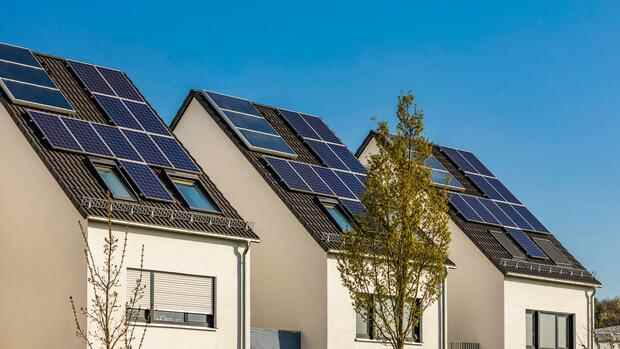Berlin A fierce argument has broken out between the SPD and the Union as to who is responsible for the freeze on subsidies for buildings with lower energy consumption. The chief housekeeper of the CSU in the Bundestag, Sebastian Brehm, sharply attacked Economics Minister Robert Habeck (Greens) on Twitter, while SPD General Secretary Kevin Kühnert (SPD), on the other hand, sees Habeck’s predecessor Peter Altmaier (CDU) as the real author of the measure.
Brehm blamed Habeck on Twitter. He likes to call himself climate minister. And now, not even 100 days in office, he is stopping the first KfW climate protection program. That was “really scandalous,” wrote Brehm.
The head of the CSU state group, Alexander Dobrindt, accused Habeck of having committed a “blatant breach of trust”. The traffic light coalition wants to prescribe instead of promoting. “This makes building considerably more expensive and will lead to less construction activity,” warned Dobrindt. The KfW funding rules would have to be put back into force,” he demanded. Kühnert countered the criticism on Twitter and spoke of “really gross nonsense”.
Top jobs of the day
Find the best jobs now and
be notified by email.
“We were informed at the end of October, one day before the start of the coalition negotiations of AG Bauen, that the KfW55 new building subsidy was to be dropped.” The messenger was a department head of the Minister for Economic Affairs. His minister: Peter Altmaier.
The budget provided is insufficient
Support comes from Federal Building Minister Klara Geywitz, who has to keep the government’s promise to provide 400,000 new apartments every year. “It was clear to everyone involved that the KfW 55 funding should expire at the end of January,” the SPD politician told the Handelsblatt. “The Ministry of Economics under Peter Altmaier had determined that.”
In fact, the old federal government had decided in November to let the funding standard for a level 55 efficiency house (EH) expire at the end of January 2022. In the future, only houses with the higher energy level 40 should be subsidized by the federal loan institute for reconstruction.
However, this funding was also stopped on Monday because the budget funds currently provided were not enough for the EH55 applications that were received but not yet decided, nor for the EH40 applications, according to the Ministry of Economic Affairs.
“It seems that the low interest rate phase, combined with the risk of negative interest rates and the announced end of the KfW 55 subsidy, has triggered a strong oversubscription,” Geywitz continued. “In principle, this is a good sign because it shows that the 400,000 apartments can be created.”
However, the cessation of funding now is not a good situation. “Many investors who have opted for KfW funding are now unsettled,” said the minister. It should now be clarified quickly what will happen to the applications that have already been made. A regulation must also be found quickly so that applications can be made again. Geywitz also called for quick clarity as to “whether there will be KfW 40 funding again”.
The life cycle of a building should be included
With a view to a new funding system, the social democrat and confidant of Chancellor Olaf Scholz (also SPD) added: “My wish is that we include both the life cycle of a building and the building material in our considerations.”
In their coalition agreement, the SPD, the Greens and the FDP agreed that future subsidies would be based on the greenhouse gas emissions saved per square meter of living space. Further details have not yet been determined. But the call for a transitional and follow-up regulation is getting louder. The BMWK initially promised that the future of the KfW funding standard would be decided “quickly”.
“It is clear that the KfW program for energy-related renovation should be resumed as soon as possible,” wrote Habeck’s State Secretary Patrick Graichen on Twitter. However, this should not apply to efficiency houses 55, which would instead be declared the standard for new construction and would no longer receive funding.
The ministry has so far left in the dark those building and house builders whose applications for funding have not yet been approved. “It has to be decided exactly how we will deal with the applications that have not yet been decided and how the EH40 new construction program should continue,” explained Graichen.
He pointed out that the funds were limited and that funding was also needed in other areas: “Because the energy and climate fund is finite, and there is also a high need for funds for climate protection in transport and industry.”
The economy also sharply criticized Tuesday. The immediate cessation of the KfW climate protection funding is “detrimental to the climate protection goals and downright absurd,” said the Secretary General of the Central Association of German Crafts (ZDH), Holger Schwannecke. “It is incomprehensible and unacceptable that in such a cloak-and-dagger operation, financing plans are thrown overboard for projects that have already been approved in many cases.” This would block long-term investments, especially in the energy-efficient building energy sector, which is essential for achieving CO2 reduction and climate protection goals are so important.
More: What the KfW shock means for consumers and real estate prices
